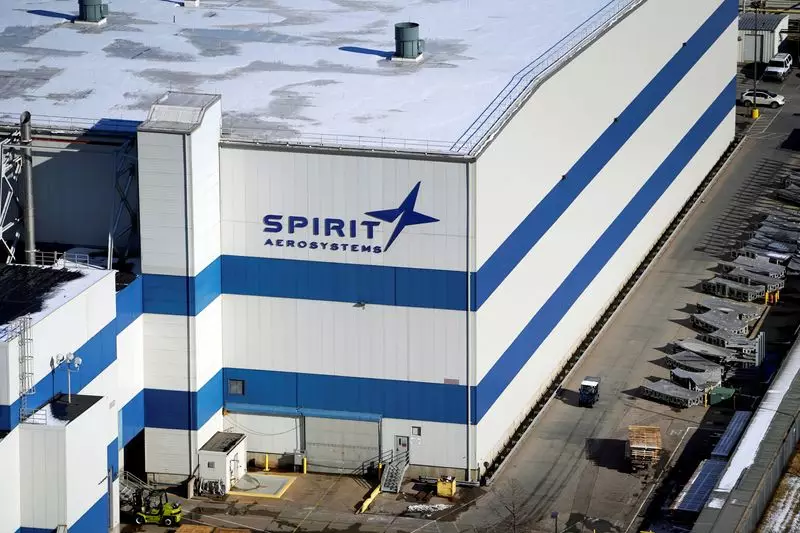The aerospace industry is experiencing unprecedented challenges, with key players reevaluating their operational strategies amidst financial turbulence. A striking example is the ongoing negotiations between Airbus, the European aviation giant, and Spirit Aerosystems, a U.S.-based supplier facing significant financial difficulties. While discussions are reportedly progressing well, Airbus CEO Guillaume Faury has candidly noted that the process of integrating Spirit into Airbus’s operations is rife with challenges. This situation underscores the delicate balance of cooperation and competition in the aerospace sector, indicating that even the strongest companies can find themselves in precarious situations that demand innovative and collaborative solutions.
Airbus is looking to take control of four Spirit Aero plants that focus on the manufacturing of components for the A350 and A220 jetliner models. This move occurs within a broader context of strategic realignment following Spirit’s financial distress, exacerbated by operational failures, particularly highlighted by the recent problem with the Boeing 737 MAX. Such issues have not only jeopardized Spirit’s financial stability but have also raised red flags for both Airbus and Boeing, who worry about the ripple effects stemming from a faltering supplier that plays a crucial role in their supply chains.
The ongoing collaboration between Airbus and Boeing regarding Spirit’s restructuring is a rare instance of former competitors teaming up to mitigate risk. Boeing’s decision to buy back the majority of its former unit and provide financial support to Spirit serves not only as a lifeline for the supplier but also as a strategic move to protect its manufacturing operations while it modernizes its fleet. The simultaneous efforts of both Airbus and Boeing to inject cash into Spirit—amounting to a collective $457 million—highlight a shared concern for the health of their supply chains.
Airbus’s agreement to assume responsibility for Spirit comes with its own set of financial implications. Spirit has committed to paying Airbus $559 million as part of this deal, contingent upon the successful completion of due diligence and other procedural requirements. Despite these financial assurances, the CEO of Airbus has emphasized that merely finalizing the deal is not the end of the story. The complexities of operational integration loom large, involving not only the transfer of management but also the daunting task of restoring profitability within the Spirit plants, which have been struggling to deliver profits.
There are inherent risks tied to the significant financial outlay required to keep Spirit afloat, especially considering the company’s warning about its ability to meet fiscal obligations in the coming year. With the firm’s market conditions being precarious, Faury has made it clear that while Airbus is optimistic, they’ve yet to face numerous hurdles before they can confidently claim a successful acquisition and integration.
Faury expressed concerns about the contagion effect a failing supplier could have on broader aerospace operations, especially as Spirit does a substantial amount of business with Airbus, accounting for 25% of its sales. The interlinked nature of modern supply chains means that failures in one area can ripple through to others, affecting production timelines, financial health, and overall industry stability. The support from Boeing—including a recent $350 million injection—reflects a growing recognition within the industry of the need to protect not only individual companies but the ecosystem as a whole.
While the negotiation between Airbus and Spirit Aerosystems unfolds with optimism from Faury, the underlying challenges and risks cannot be underestimated. The complexity of integrating a struggling entity into a larger organization is fraught with obstacles. The future of Spirit, Airbus, and, by extension, the aerospace industry, will depend on effective collaboration and strategic foresight to navigate these tumultuous waters. As the industry’s key players inch forward with caution, there remains a collective responsibility to foster resilience within the aerospace supply chain to avert wider disruptions in the future.

